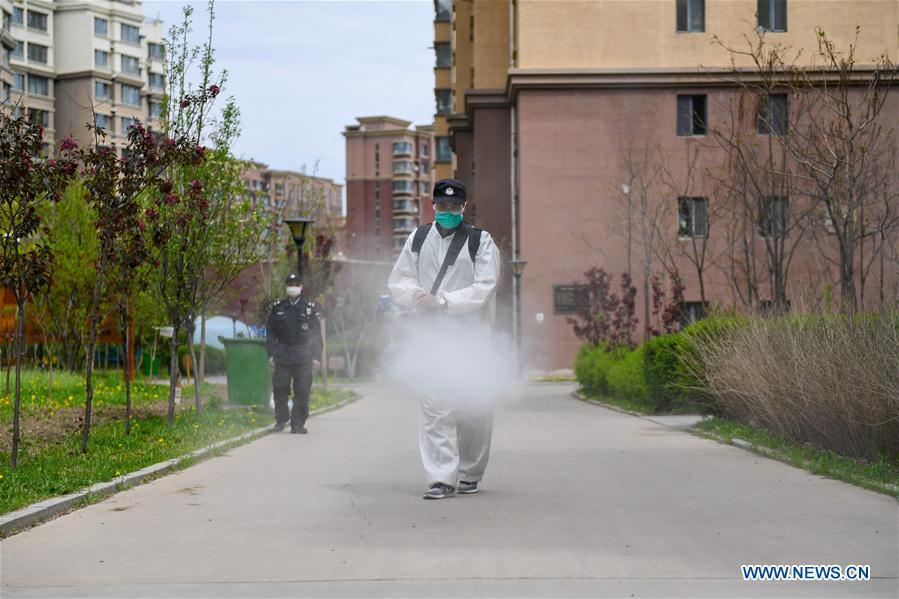
A worker conducts disinfection at a residential community in Chuanying district of Jilin city, Northeast China's Jilin province, May 16, 2020. (Photo: Xinhua)
All the country's three new locally infected COVID-19 cases confirmed on Saturday were found in the northeastern city of Jilin, where Shulan, a county-level city under its jurisdiction, is the latest pandemic hotspot in the country, having the highest concentration of current infections. With hundreds of residents under medical quarantine, and knowledge about the corresponding tree of contacts still incomplete, it will take time to see the actual scope of the infections.
But with Shulan under lockdown and all residential communities in Jilin subject to strict pandemic response measures — only one person from a family can go out and purchase daily necessities each day — things may get back to normal in a couple of weeks, if no additional infections occur.
Vice-Premier Sun Chunlan, who is charged with pandemic containment, having overseen the campaign in Wuhan and Hubei province, is on the front line in Jilin. With a number of local officials having been removed from their positions in the wake of the Shulan infections, it is certain that the local authorities will have the resolve to make every effort to prevent the disease's further spread.
And the cluster of infections in Shulan should also help convince local residents of the need for extra caution for the purpose of self protection.
But while this specific cluster may see its end soon, it would be dangerous if the episode is just taken at face value. It should awaken us to the reality that our achievements in pandemic containment are fragile, and at this stage continuous vigilance remains the only effective means of defense.
Schools were about to reopen, stores were about to open again for business, and lives in Shulan were about to regain some normalcy when the new infections were reported, and, literally overnight, the strictest restrictions were reinstalled, and local life went back into a state of deep freeze.
This, and a cluster of infections in a neighborhood in Wuhan, Hubei province, should be a stern stark warning to all those who are blindly optimistic the pandemic has lost its foothold here.
Early detection and identification of infections, early quarantine of suspected cases and treatment of the confirmed ones has proved to be effective in cutting off the transmission and control of those vulnerable. But in the absence of effective treatments or vaccine, we can't relax until at least most other countries are safe.
This is still not the time to let our guard down.


